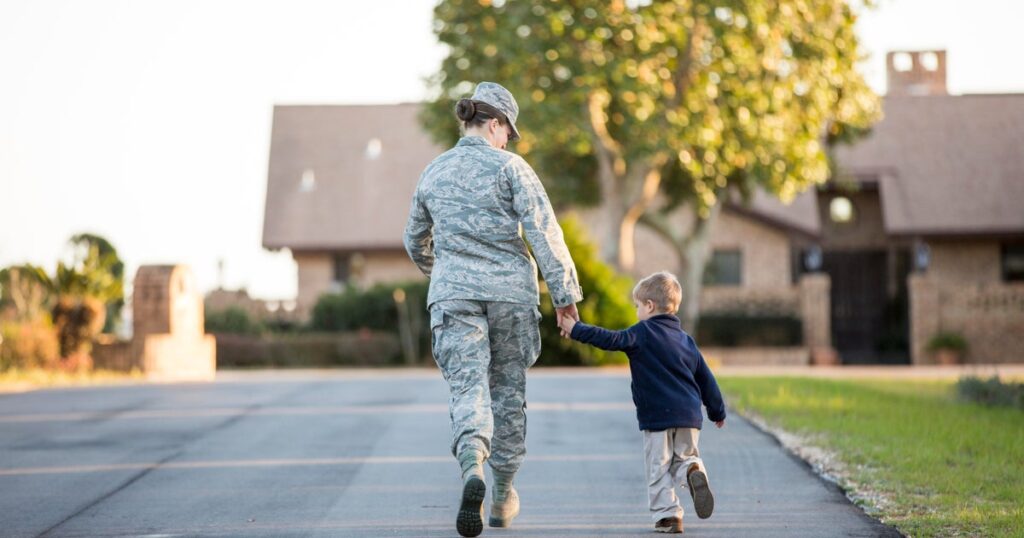Naomi Pyle isn’t sure if her husband’s next paycheck from the U.S. Navy will arrive on Wednesday.
The couple, who are raising two children in San Diego, California, were already struggling to make ends meet before the government shut down on October 1, Pyle, 30, told CBS News, adding that the family won’t be able to cover all of their expenses if he doesn’t get paid on time.
President Trump last week sought to allay such concerns, writing on social media that his administration had “identified funds” to pay military service members and directing Defense Secretary Pete Hegseth to ensure paychecks go out on Oct. 15 as scheduled. While the president did not offer additional details, the White House Office of Management and Budget told the Associated Press it would use Pentagon research and development funds to pay troops “in the event the funding lapse continues past October 15th.”
Still, for some service member families, even the possibility of missing a single paycheck is fueling concerns about money.
“We were already living paycheck to paycheck, so this doesn’t help at all,” Pyle told CBS News. “We have to pick and choose which bills to pay now.”
The family’s income comes to around $1,200 a week, Pyle said. Between the cost of rent, utilities, her 10-year-old daughter’s braces and therapy for her 5-year-old autistic son, paring the family’s budget is difficult, she noted. Even her own dental care is on hold for now.
“It shouldn’t take everything out of us just to survive,” Pyle said. “We sacrifice so much — and having to deal with being a special needs parent alone — it’s all piling up, and this was one more thing that didn’t need to happen.”
The White House referred a request for comment to the Office of Management and Budget. The agency did not respond to CBS News’ inquiry.
“Extremely stressful”
One in 6 active-duty military families was already experiencing food insecurity before the shutdown, according to a 2023 survey from Blue Star Families. The advocacy group also found that roughly a third of service member households have less than $3,000 in savings, leaving them vulnerable to financial emergencies.
As a result, missing a paycheck can have “a devastating impact,” said Kathy Roth-Douquet, CEO of Blue Star Families.
“There is a financial impact first and foremost, but there is a big psychological impact, too, that is in some ways equally damaging,” she added.
Roth-Douquet noted that many military families depend on a single income because frequent relocations make it difficult for spouses to find steady work. “That means families depend on one paycheck, and if they don’t get it, it can tip them into disaster,” she said.
Misty Gilbert, whose husband is a member of the U.S. Coast Guard, earns a second income as a sixth-grade special education teacher in San Diego. Her salary isn’t substantial enough to support her family even for a short period of time, she told CBS News.
“My check alone would barely cover the rent,” she said.
She added that the uncertainty caused by the government shutdown has been “extremely stressful” for her family.
“The holidays are coming up — a lot of times we like to travel to see family. I don’t know if that would be an option if this continues, if we can justify those types of expenses of seeing family and holiday expenses in general,” she said.
https://www.cbsnews.com/news/government-shutdown-military-missed-paycheck/


